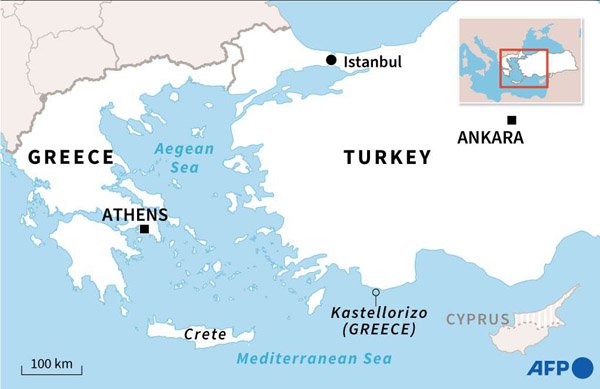The relationship between Greece and Turkey, two nations with intertwined histories, has been characterized by a mixture of cooperation, rivalry, and tension. Situated at the crossroads of Europe and Asia, their interactions have significant implications for regional stability and broader geopolitical dynamics. This analysis delves into the multifaceted aspects of their relationship, exploring historical antecedents, territorial disputes, economic ties, and geopolitical considerations that shape contemporary Greek-Turkish relations.
Historical Context:
The roots of Greek-Turkish relations can be traced back to ancient times, marked by conflicts such as the Greco-Persian Wars. However, the modern era is largely defined by the decline of the Ottoman Empire and the emergence of independent Greece in the 19th century. The dissolution of the Ottoman Empire led to territorial disputes and population exchanges, setting the stage for a tumultuous relationship between the newly formed nation-states.

The Cyprus Issue:
One of the most contentious issues between Greece and Turkey is the status of Cyprus. The island has been divided since 1974 following a Turkish military intervention in response to a Greek-backed coup. Efforts to reunify the island have been ongoing but have faced numerous obstacles, reflecting deeper historical animosities and conflicting national interests.
Territorial Disputes and Sovereignty Claims:
Beyond Cyprus, Greece and Turkey have clashed over territorial claims in the Aegean Sea. Islands such as Imia/Kardak have been flashpoints, leading to heightened tension and military confrontation. The delimitation of maritime boundaries and exclusive economic zones (EEZs) in the Eastern Mediterranean further exacerbates these tensions, particularly with the discovery of significant natural gas reserves.
NATO and Security Dynamics:
Both Greece and Turkey are members of NATO, theoretically bound by mutual defense obligations. However, this alliance dynamic is complicated by historical grievances and divergent strategic interests. Incidents such as the Cyprus crisis of 1963 and the Imia/Kardak crisis in 1996 strained NATO cohesion, highlighting the challenges of managing intra-alliance conflicts.
Economic Interdependence:
Despite political differences, Greece and Turkey share significant economic ties. Trade relations, tourism, and energy cooperation offer avenues for engagement and mutual benefit. However, political disputes often overshadow economic interdependence, leading to periodic disruptions and uncertainties.
Cultural and Social Exchanges:
Cultural and social exchanges between Greece and Turkey provide a counterbalance to political tensions. Shared cultural heritage, culinary traditions, and historical legacies foster people-to-people connections that transcend political divides. Cultural diplomacy initiatives play a crucial role in promoting mutual understanding and reconciliation.
Diplomatic Initiatives and Mediation Efforts:
Various diplomatic initiatives and mediation efforts have aimed to de-escalate tensions and foster dialogue between Greece and Turkey. International organizations, such as the United Nations and the European Union, as well as individual actors, have sought to facilitate negotiations and confidence-building measures. However, progress has often been incremental, with entrenched mistrust and divergent priorities impeding meaningful breakthroughs.
Geopolitical Considerations:
The Greek-Turkish relationship is situated within a broader geopolitical context shaped by regional power dynamics and global trends. Factors such as the rise of nationalist sentiments, competition for energy resources, and the influence of external actors contribute to the complexity of their interactions. Moreover, shifts in alliances and security architectures in the Eastern Mediterranean and the wider Middle East have implications for Greek-Turkish relations.
Prospects for the Future:
The future trajectory of Greek-Turkish relations remains uncertain, with a range of possible scenarios depending on political developments, external factors, and societal dynamics. While the status quo of periodic tensions interspersed with periods of détente may persist, there is also potential for transformative shifts driven by geopolitical realignments or domestic changes. Ultimately, the path forward requires a delicate balance of pragmatism, diplomacy, and a willingness to address underlying grievances.
The relationship between Greece and Turkey is characterized by a complex interplay of historical legacies, territorial disputes, economic interests, and geopolitical considerations. While tensions and conflicts have defined much of their interaction, there are also opportunities for cooperation and mutual benefit. Navigating the Aegean rift requires sustained engagement, dialogue, and a commitment to finding peaceful resolutions to longstanding grievances. The stakes are high, not only for Greece and Turkey but for the broader region and international community as well.
